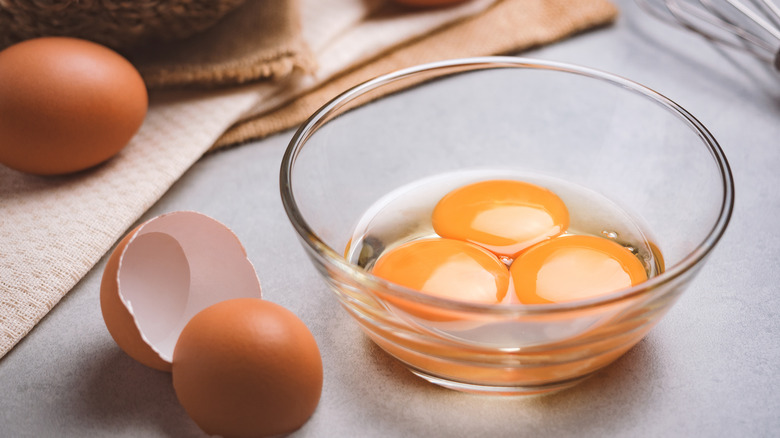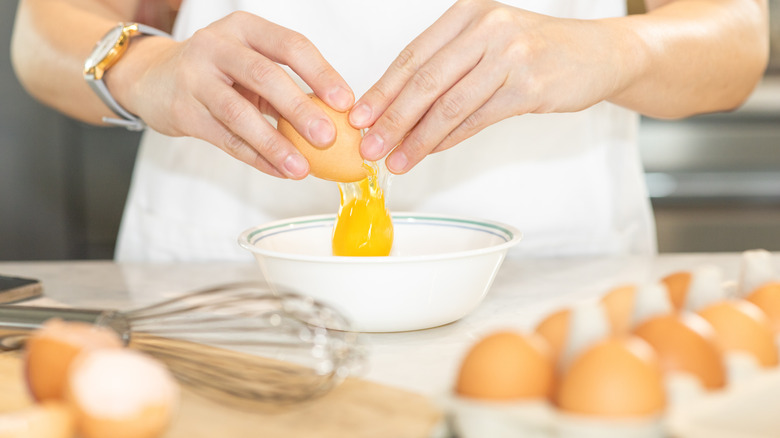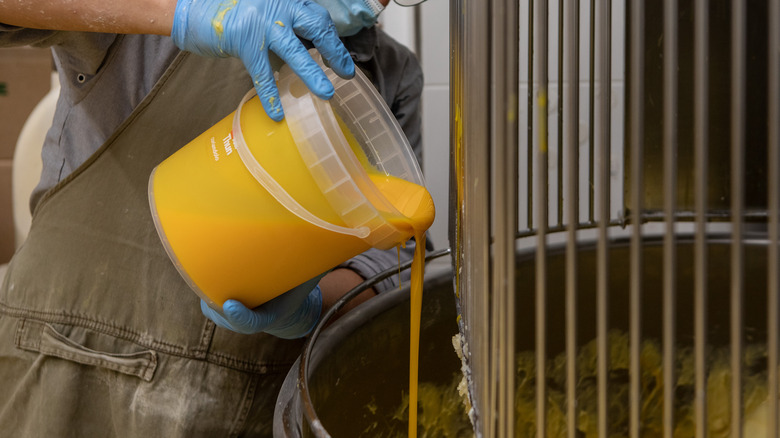What Does It Mean To 'Pool' Eggs (And Should You Be Doing It)?
Few foods are as versatile and well-loved as the incredible, edible egg. It's said that there are 101 ways to cook an egg, and cultures all around the globe have prepared eggs with their own particular methodology.
It's understandable why consumers have been so upset over rising egg prices. Data from the Bureau of Labor Statistics shows that egg prices have increased 70% over the past year. Even Dollar General can't afford to continue selling eggs at these prices, so many homes have had to learn how to make their eggs last.
One method that might help save some eggs is to start pooling them when cooking or baking. Pooling means collecting all the eggs you'll need for a given recipe in a bowl, but only after they've been cracked into another smaller bowl first. This may sound time-consuming and tedious, but considering the current egg shortage, it has benefits.
Advantages of pooling eggs
Pooling eggs is highly simple and can save you time and money in the long run. By cracking each egg into a bowl before adding it to the rest of the pool, you can spot and get rid of rotten eggs before they ruin the bunch. Let's say you're making a cake, and you skip this step. After adding several eggs to your other prepared ingredients, you crack in a rotten egg, and your entire recipe is ruined. It can be tricky to do without breaking them open. These extra steps may slow you down but will also save you from wasting half a carton of eggs.
Pooling eggs also helps keep eggshells out of your food. There's nothing worse than taking a bite of rich, creamy scrambled eggs and feeling the gritty crunch of an eggshell and cracking single eggs into a bowl first spot those shells, making removal much easier.
Drawbacks to pooling eggs
Many restaurants also use the pooled eggs method to save time. Instead of cracking three eggs every time they get an order for an omelet, chefs are able to scoop out what they need from a bowl of already-cracked eggs.
The problem is that the CDC says it creates a health risk. Working with these larger batches can allow contaminated eggs to infect the whole bunch. Yes, this method is helpful to spot the obviously rotten eggs, but some eggs can be contaminated with diseases that are impossible to spot with the naked eye. Mixing a large batch of these eggs can cause this disease to spread and may be harmful to diners. That said, a study by the CDC found that 54% of polled restaurants still pool their eggs during meal service.
It should be noted that if you plan to start pooling your eggs, ensure they are pasteurized and adequately stored to minimize the risk of spreading any food-borne pathogens.


